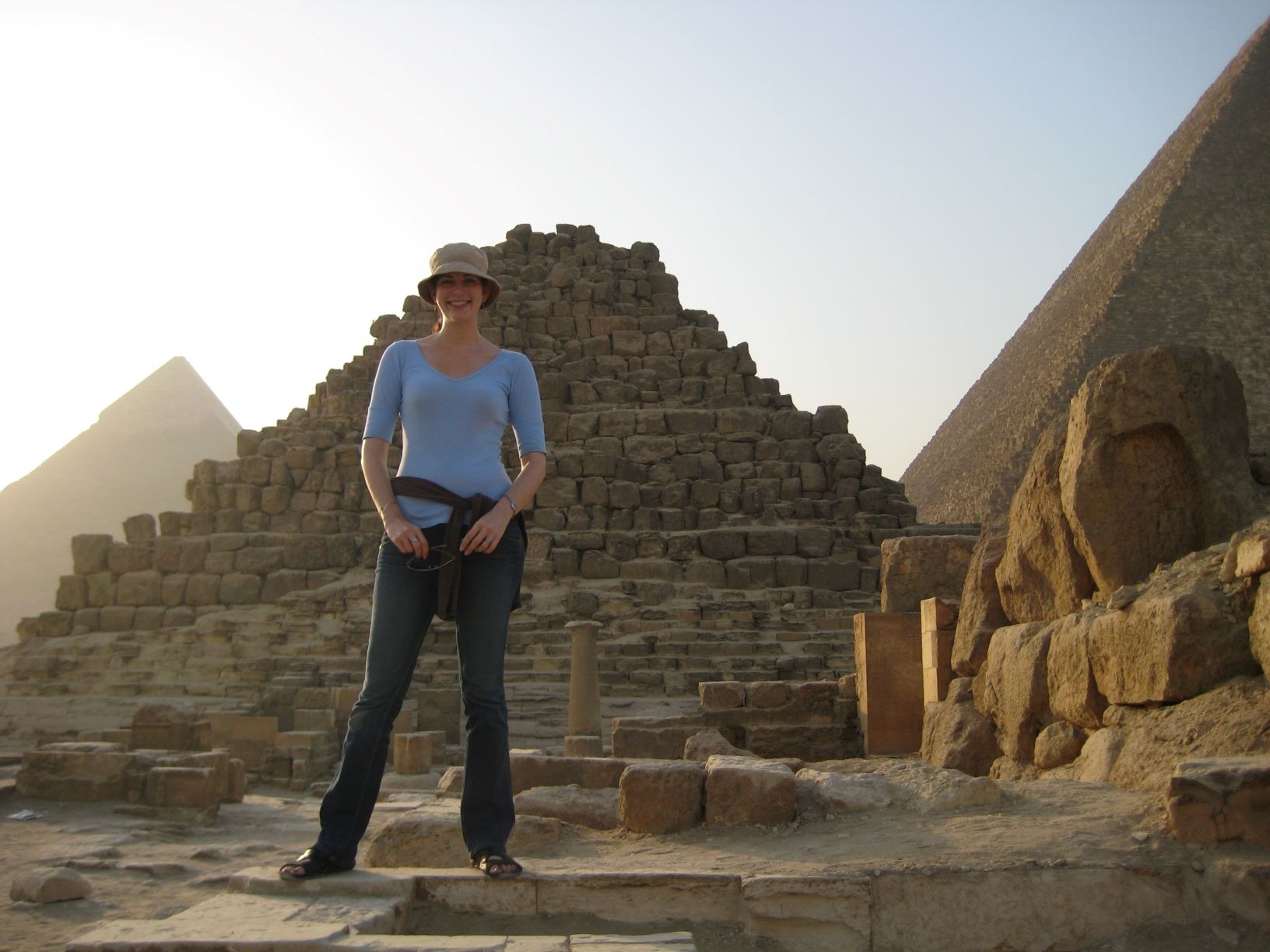"When I reach out to all the nerds of humanity, who are looking around at the state of the world and wondering “what’s going on here?” — that’s the kind of curious person I need to connect with." --Dr. Kara Cooney
We were very fortunate to sit down and have a conversation with Dr. Kara Cooney, Egyptologist about her life, career, and findings. Check out our interview with her below, then come see her LIVE in “When Women Ruled the World,” a discussion on women often ignored by history books and the power and influence they held in Ancient Egyptian society.
*Interview cut and condensed for length*
What is the biggest misconception people have about you being an Egyptologist?
I think the biggest misconception is that people think I’m doing something that just has no relevancy whatsoever to today, when it has all the relevance you could ever imagine. People think that it’s rather useless, and I have given my life to this strange, nerdy obsession that’s not contributing to society at all. Egyptology has helped me see the world around us. We are not different from the ancient Egyptians. We ‘other’ them, we make them mysterious and magical; but they are the same human species with the same anxieties, the same systems of power that we use today, and we ignore these ancient people who are parallel to us.
Why and what made you go into the field of Egyptology?
It’s the kind of question one Egyptologist would never ask another. Because we all know that there is absolutely no answer for this weirdness we have chosen. I have no answer for it. My parents have no answer for it. All I can tell you is that for whatever reason I see history through the lens of Ancient Egypt. I am drawn to these people, I am drawn to this, and it is something I feel compelled to do. Egypt draws us in because it can communicate so well despite the long time that has passed. You could, without reading hieroglyphs, stand in front of a temple, with language you do not understand and be drawn in more than with other cultural systems. I think that ability to communicate across cultures and across time is what keeps people interested in Ancient Egypt.
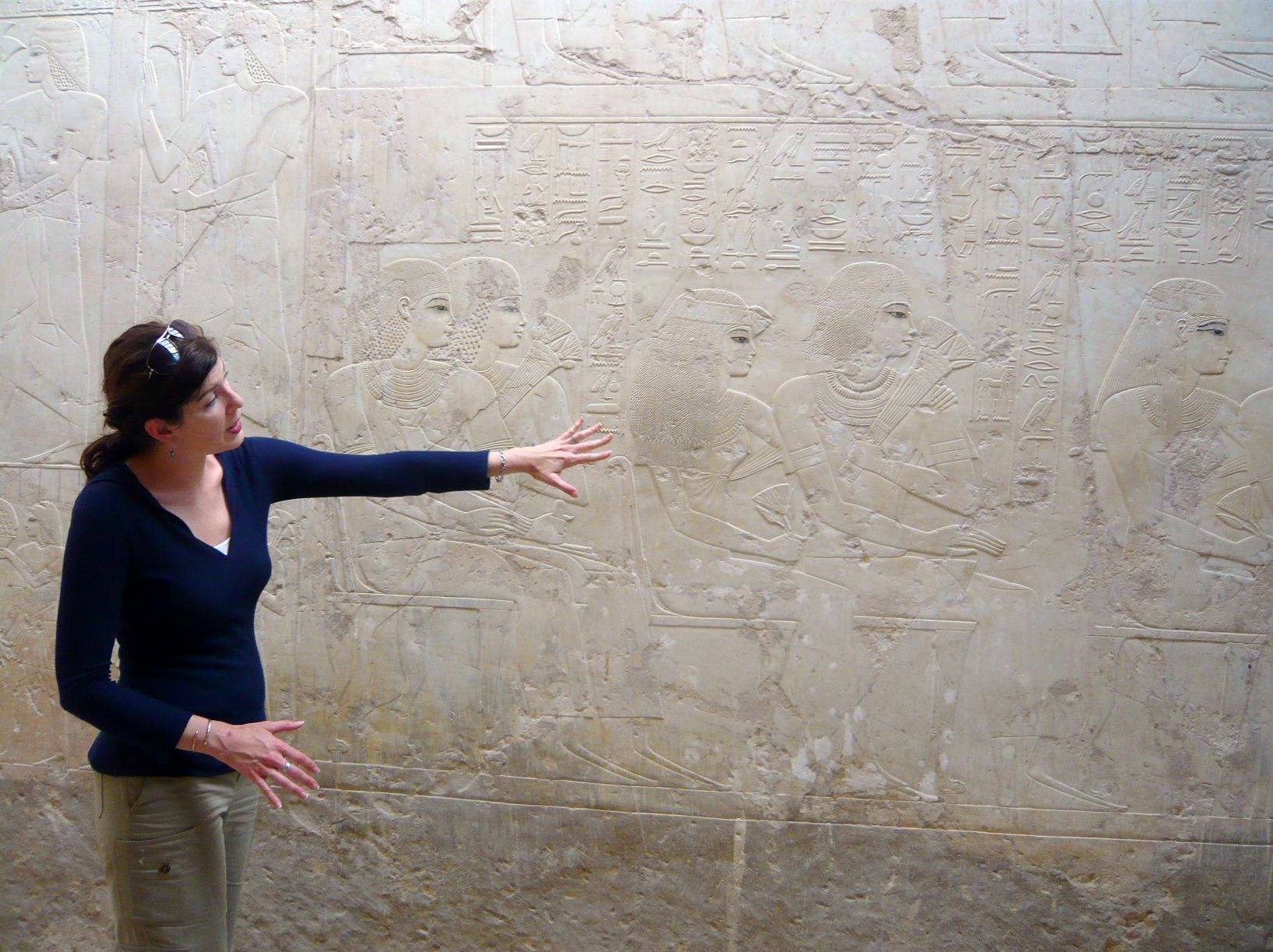
What do you think the women of the past would think of the women of today?
I think women of the past would be shocked and slightly jealous of the women of today…and yet it’s not that different. I start my talk with four slides that talk about how women don’t have any real power. We feel we have come so far, and we feel we have so much power. All those things are true, and yet we are doing it through the same patriarchal system in which we have to lean in, in which we must dress like men and grab bigger pieces of the pie. As we do that, we lose what a woman’s voice could be without patriarchal demands. The only way we can have any power at all is to participate in that already existing system.
I am of two minds: if an ancient Egyptian woman looked at where we are today looking at how things are ruled, she would see very similar things. She would see the men ruling the money, the religion, and the politics largely and that the women who are able to scrappily fight their way in had to reject any female instincts they have in favor of the system they are a part of. But if they went to East LA or neighborhoods of Philadelphia and saw women who are acting as breadwinners in the absence of men or without the need for a man, they would see the change—that would be as shocking for them as it is sometimes for us.
That is why Egypt is so great. That’s why I need to use it, because we self-deceive ourselves so well. We are so bombarded by information, we can’t see it. Asking how an ancient Egyptian would see modern day is exactly what I am doing every day, and it helps me see the system that much better. You need to remove all the extraneous stuff, strip it down and say, “what should we see?”
Can you give us a preview of what you discuss in your talk?
My talk is separated into three parts. The first part is why women don’t have power, or just proving to you that women do not have power and asking why. The second part is then getting into the why. We go back hundreds and thousands of years to the hunter/gatherer human and how women in those societies could have equal power to men. Then when the agricultural revolution hit 10,000 years ago all that power was quickly and suddenly lost, which leaves us with the system in which we live today. I will then discuss why Egypt allowed power for females so regularly. We will look at six case studies of women and try to see what patterns they built and what they can teach us about what they allowed that we don’t allow, and why female power is still considered with such hostility and even repugnance.
I never make it about the individual, it’s about the system. There are millions of men who live in this system who want it to be different, yet they themselves are caught in a machine they can’t control. This is not about “you men are doing this to us” — this is not my lens; my lens is how do economic and political systems force us into these categories that we fulfill without even knowing that we’re doing it.
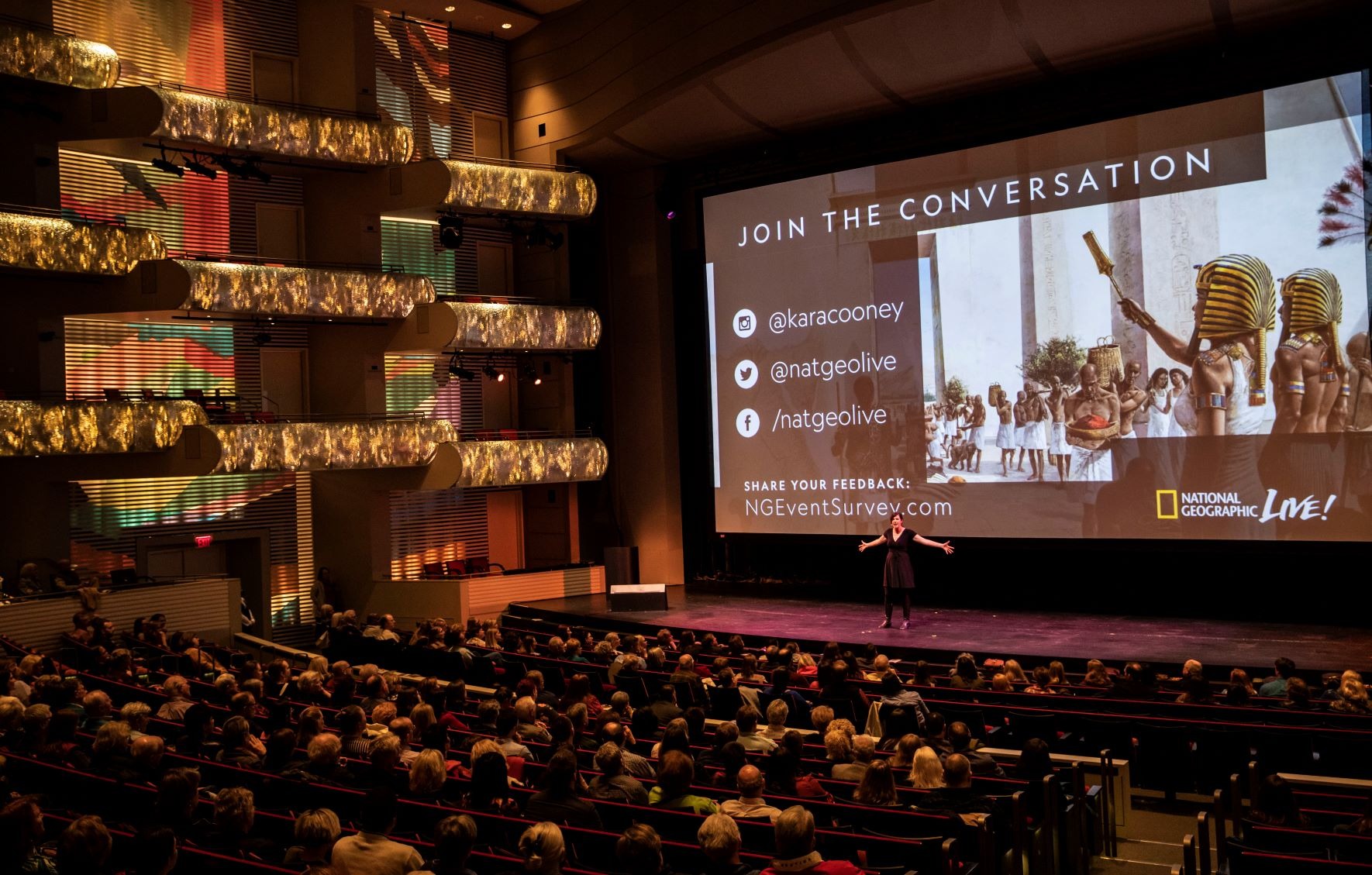
What does it mean to you to be connected to National Geographic, and to have that platform to share and talk about your findings?
Working with NatGeo is extraordinary because the public speaking I used to do was to all the Egypt nerds. Not that there’s anything wrong with Egypt nerds, but they can already find me. When I reach out to all the nerds of humanity, who are looking around at the state of the world and wondering “what’s going on here?” — that’s the kind of curious person I need to connect with. The NatGeo Live stage allows me to connect with hundreds and thousands of curious people in a way I could not before. It’s been very joyful; I go onto that stage and the connection with the audience and the joyful curiosity is palpable. I just love it, and there are kids and young people there. NatGeo allows to bring more new life into this and that’s great.
What do you hope the young people who come to your talk take away from it?
I want young people to start questioning how history is written. I want them to be asking “who’s telling me this story and what is their agenda?” Because these things about “fake news” are not new! People are shocked by boundaries being crossed and cannot believe the fake news being spread into the media, but this is how people in control have dominated and used information since the dawn of the complex society. There is “fake” news everywhere and everyone needs to be looking and questioning “who’s benefiting from this story being told this way? What could other truths be?” We need to realize that while I’m trying to unravel an ancient civilization from thousands of years ago, we’re all doing that all the time. I want young people to start to look around them and ask how stories are told.
If you could have a conversation with any woman from history, who would you choose and why?
Nefertiti. I would’ve answered this question differently a year ago, but Nefertiti’s story is something that archaeologists are rewriting right now. She had to take power with the cover of multiple veils of her old identity as a female queen, as her identity as a co-king, and you can’t even recognize the Nefertiti that was in her new persona as king. We’re also learning things about the regime in which she lived and how cruel it was to its people. This is a woman who is part of an authoritarian system, but it seems from the data we have now that she was the one healing the wounds after all of its trauma, setting things right, putting the old gods back in their places.
Nefertiti’s story brings up so many things for me – why a woman must hide to take on power. She brings up all the trauma that an unrestrained patriarchy can unleash on society and how women go along with it because they have no other choice, or because they are close to power, and then how they might heal some of those wounds after. Any woman who has lived in a family in which they had little control, either as a child, a young adult, or within a marriage in which they were abused or gaslit or controlled and has found her way out of it, will understand Nefertiti’s story.
Who would you have answered a year ago?
I would have said Cleopatra, just to find out if she was actually murdered instead of said to have committed suicide. So much of Cleopatra’s story was written by Romans for their own propaganda purposes. The truth about Cleopatra is just as hidden as these other women, yet we think we know her better and we do not. But I’ll still sit down with both of them given the chance!
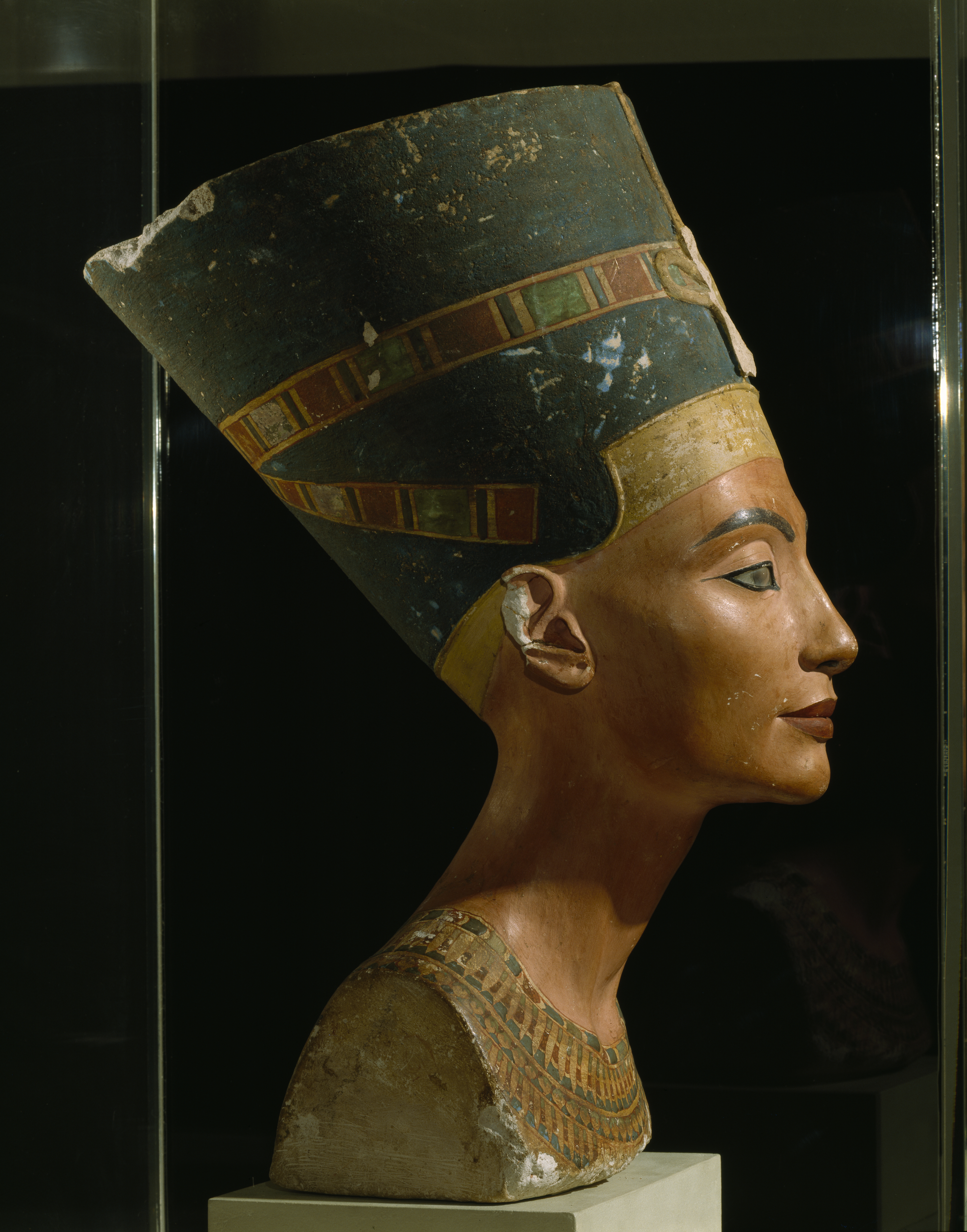
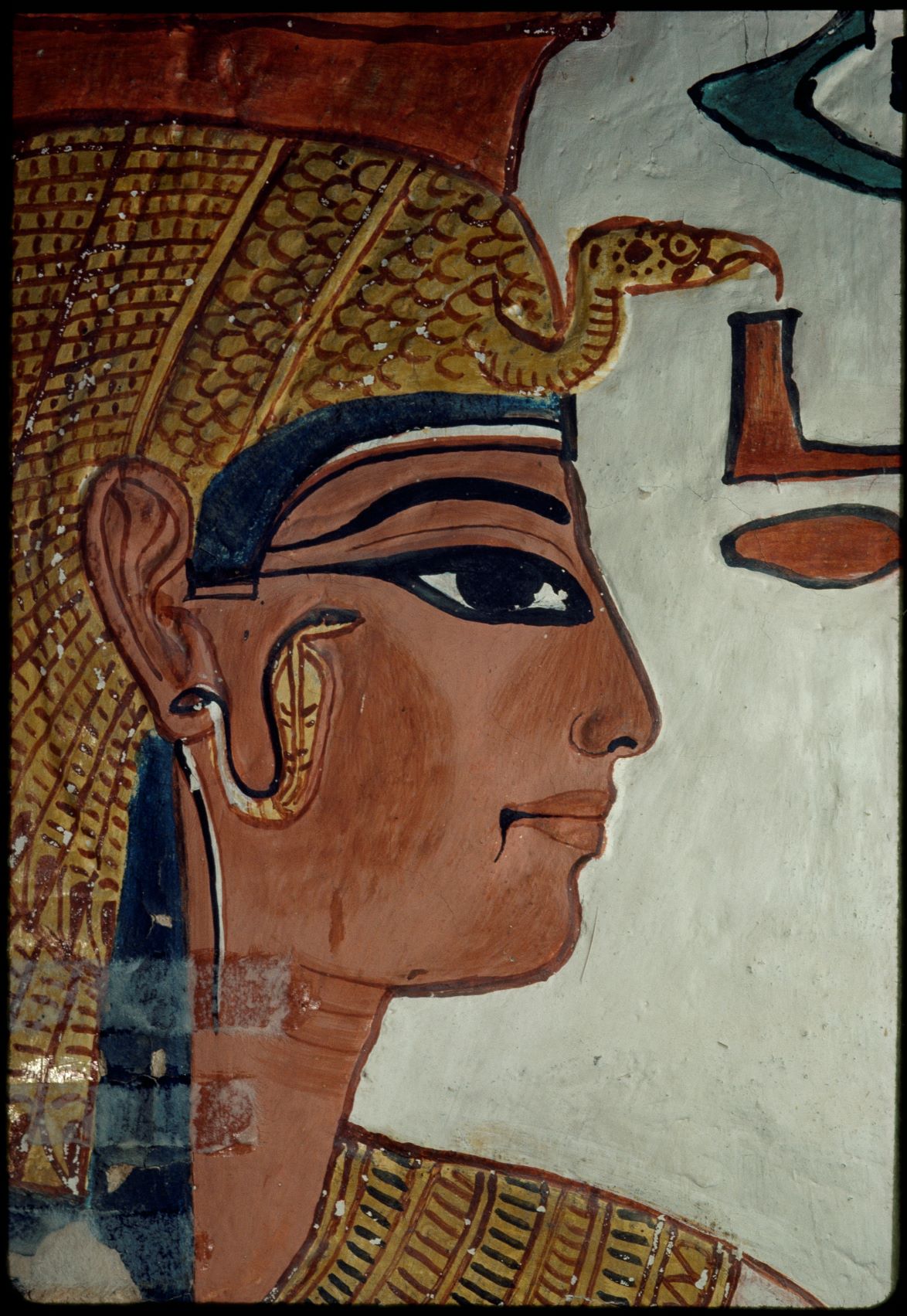
What is the educational trail that leads one to study Egyptology?
Not every place is going to train you to be an Egyptologist. You need to live in the right city and have access to the right universities. UCLA, UC Berkley, and Michigan are the only public institutions in the United States that actually teach Egyptology. But if you’re an undergraduate and you’re really into it, the best things to do are to get a solid knowledge of French and German because Egyptology is extraordinarily colonial. The other thing to do is get some basic Egyptian and Arabic conversational abilities that would be really useful. Before even getting to the Ancient Egypt nuts and bolts of temples and statues, you’re just trying to get the language ability so you can enter the discourse. And that is why there are so few of us and why it is so difficult to attain mastery. You’re dealing with the Egyptians on one side and their current language of Arabic, and then you’re dealing with the Europeans on the other side and how they published these things.
You’ll take classes in history, archaeology, and whatever is available that help you understand human systems. As soon as you get the opportunity to do middle Egyptian introduction to hieroglyphs you want to jump on that. Those opportunities are few and far between. At UCLA, I now teach an Egyptian hieroglyphs introductory class remotely so you could log from anywhere and take this class for 5 hours a day, for 6 weeks. It’s an intensive Egyptian course that gets you through a year of Egyptian in 6 weeks.
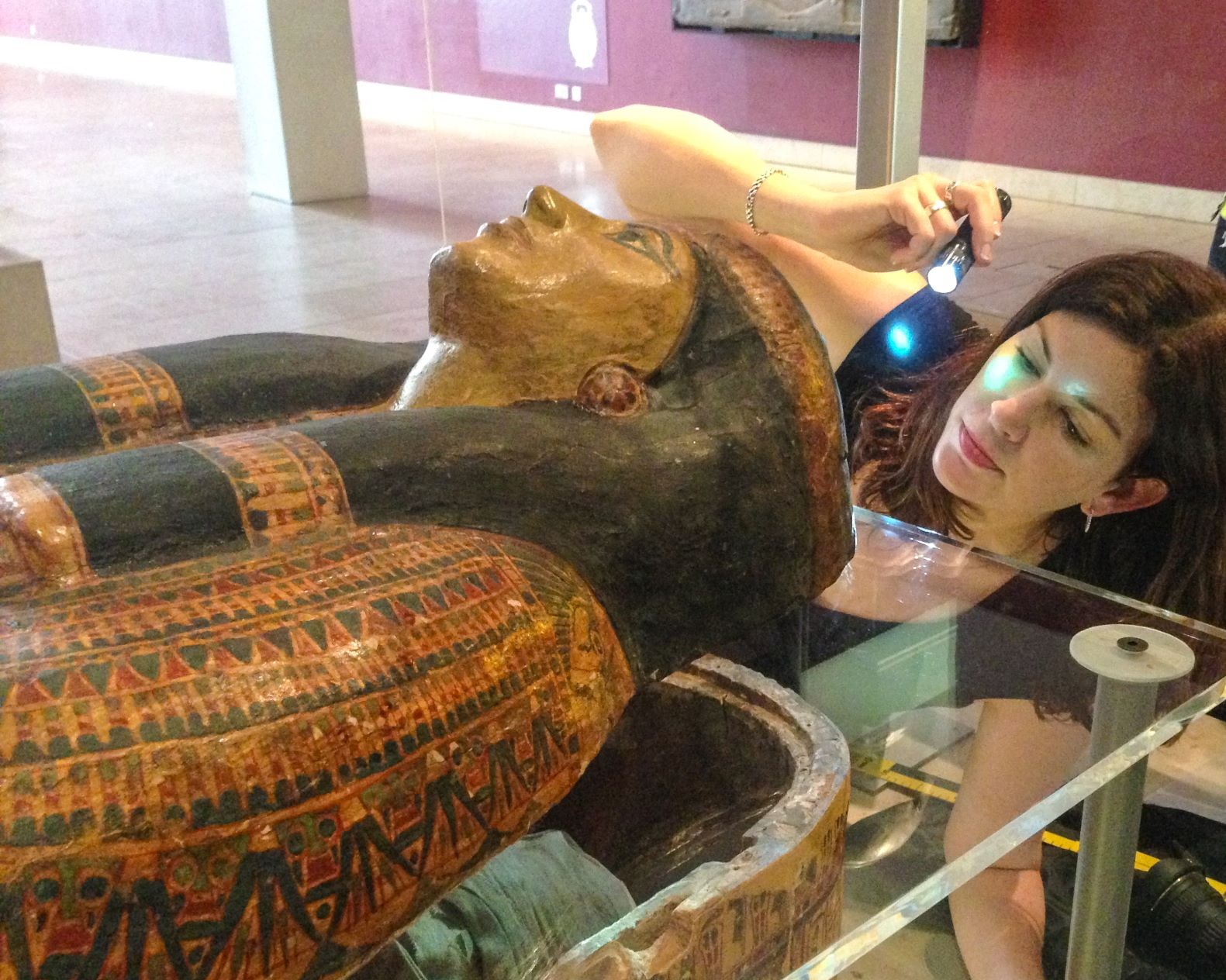
You’ve written two books so far—When Women Ruled The World and The Women Who Would Be King. Are you working on another book?
I am actually working on four different books right now. I have an edited volume I’m doing with two of my grad students that’s all about Egyptian social history and questioning assumptions that Egyptologists have. That’s a more academic side of my writing. Along with this, I’m also writing a book on coffin reuse which is a subject I’ve been working on for the last 15 years. I have 300 coffins I’ve looked at in different museums, and I need to get that information organized and represented in pictorial form so that others can participate in that discourse of reuse. Then, I am working on a manuscript for Cambridge University Press, a short book about coffins and the business of buying, using and selling coffins.
And finally, I have some crazy notes running through my head constantly and that is my next book for National Geographic about authoritarianism and how it sells itself to us as the best, most moral option. I’m calling it “The Good Kings: Pulling Back the Veil on Ancient Egyptian Authoritarianism.” I will compare it to systems today and see how they sell themselves, what the optics are, how our fear plays into it, and see what I can make of this. It’s turning the feminist approach I have for Egyptian females on its head and looking at it through the lens of the patriarchy.
All the same things that happened to ancient Egyptians are happening to us now. Maybe it’s more technological, maybe it’s more complicated, maybe there’s more people involved, but it’s the same unequal social structures. My work gives me a deep time lens that we don’t have in our world as we move from moment to moment, tweet to tweet, day to day. It’s time for some historians to come in and say “Wait! This has happened before, we have been here before, this is not new. They’re not doing anything different from what we’re doing, and this is what we could do instead.” We need more of those voices.
Hear more from Dr. Cooney and her incredible research LIVE when she stops in Philadelphia at the Kimmel Center Cultural Campus’ Merriam Theater to present “When Women Ruled The World” on Wednesday, March 16.
Tickets available at https://www.kimmelculturalcampus.org/events-and-tickets/201920/kcp/hen-women-rule-the-world/.
